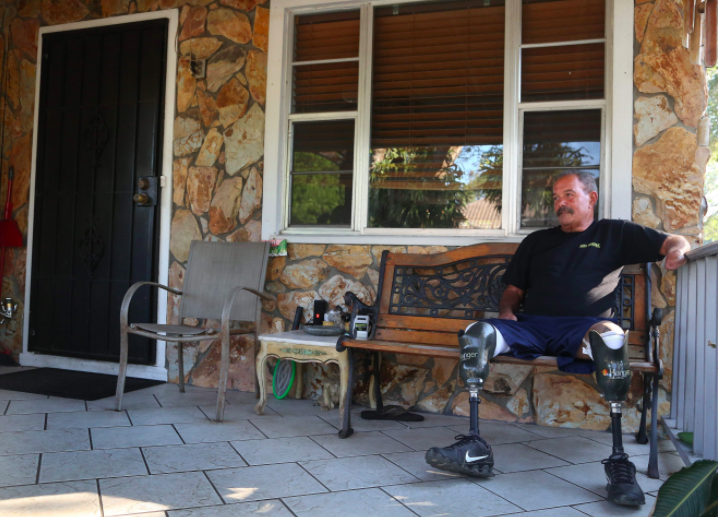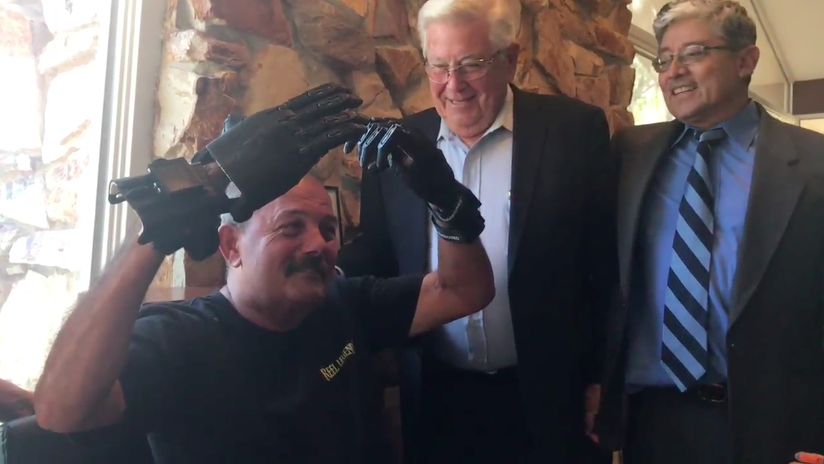A former metalworker whose limbs were amputated following surgery complications has been given a new lease of life with a pair of 3D printed hands. Francisco Piedra from Florida had the new hands manufactured for him by Handling the Future, a local chapter of the volunteer organization e-NABLE.
The new pair of FFF 3D printed hands are controlled from the wrist, with the tension of rubber bands moving the digits. With the new hands, Piedra can now handle and grip objects, whilst also supporting himself on a pair of donated prosthetic legs.
e-NABLE can lend a hand
Piedra originally lost his limbs after a condition called heparin-induced thrombosis caused his blood to clot, cutting off the blood supply to his limbs and causing gangrene. Seeing Piedra’s desire to regain mobility and dexterity, clinician Dr Luis Jovel asked his assistant Danielle Ayala to find a cost-effective prosthesis.
Noting the significant cost savings that could be made through 3D printing, Ayala asked the University of South Florida to use its 3D printers to build models of the prospective prosthesis.
Following this, Ayala reached out to the volunteer organization e-NABLE, a worldwide network that 3D prints limbs for those born without them or missing them due to conflict or natural disasters. 3D printed hands from e-NABLE have helped children with congenitally missing limbs in the US, and conflict victims in Haiti.

Put your hands together
A local e-NABLE chapter based nearby called Handling the Future, led by New York-based Richard Brown offered to 3D print the hands for free. Brown and another volunteer, Glenn Brown, 3D printed a hand each using FFF, before making final adjustments after meeting Piedra in person and taking measurements.
The palm alone took 16 hours to print, and a 3D printed pin held the individual pieces of the hands in place. To add functionality to the hands, they were wired up to be wrist-powered, with wires running through each digit, connected to rubber bands that function like tendons.
Despite the fragility of the limbs, Piedra was positive about the freedom that the prostheses gave him. “That’s going to be a lot better than what I have now,” he told the Tampa Bay Times. “I’m happy with my life, my wife, and my kids…maybe with prosthetic hands I’ll be able to go to work again.” The e-NABLE community will now look into making 3D printed hands for specialised tasks like handiwork and fishing.

Nominations for the second annual 3D Printing Industry Awards are now open. Make your selections now.
For more stories on 3D printing and prostheses, subscribe to our free 3D Printing Industry newsletter, follow us on Twitter, and like us on Facebook.
Featured image shows Piedra’s prosthetic left hand. Photo via Tampa Bay Times.


